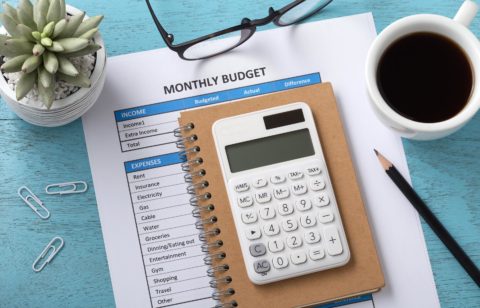People love creature comforts, those things they enjoy that aren’t necessities but just make them feel better. Maybe it’s a new pair of shoes, Friday night pizza, or a morning mocha latte. When it comes down to it, many of the things people spend money on aren’t necessities at all; they’re things they could do without in their lives. If you’re ready to take charge of your finances, here’s a simple cost-cutting project that will not only show you where you can make changes to save money, but also show that you can get by on a lot less than you think.
Determining Your Expenses
For this project, you need to determine how much you’re spending each month on everything and make a list. Obviously, this includes rent, utilities, and any other monthly bills you have. Be sure to include ones that may not come every month, such as auto or homeowner’s insurance. Add a realistic sum of what you spend on groceries, eating out, transportation costs, manicures, hair care, cable, streaming services, subscriptions, gym membership, clothing, and anything else that you spend money on each month.
Look closely at the list and ask yourself, “Is it a ‘want’ or a ‘need’?” Cross out anything that’s not a need. Needs are things that must be paid, such as bills. Haircuts are usually considered needs, along with basic toiletries, cleaning supplies, prescriptions, daycare, essential groceries, pet food, and vet costs. A bare-bones budget usually doesn’t allow for entertainment, eating out, transportation for non-essential trips, vacations, manicures, hair coloring, hobbies, or even the gym. You may tell yourself that you need these things, but for this cost-cutting project, you’ll be considering them wants.
Creating Your Budget
What you’re left with should be significantly less than what you started with. Break down these expenses by category.
Rent and Utilities
Include rent or mortgage, heating, water, electricity, and phone.
Groceries
Think about basics only, meaning what’s necessary to cover your needs.
Transportation
This should be your car payment, parking, insurance, and public transportation costs.
Household
Include laundry detergent, cleaning products, and anything else you need to take care of your household each month.
Clothing
Your clothing budget should be used for clothes that you’ll actually wear. Consider basic but good pieces that you can mix and match to make different outfits.
Health
Your health costs should include insurance premiums, OTC medicines, co-payments, out-of-pocket medical expenses, etc.
Entertainment
As stated, there’s no room for entertainment in a scaled-down, bare-bones budget. However, to get a better idea of what you can live without; you should allow a little bit of entertainment but keep it to a minimum, such as a music streaming service, or Netflix, or a meal out each week. Keep it small, but give yourself something to envision.
Now, live on this budget for the rest of the year; or, set a 30- or 60-day goal.
Further Reducing Expenses
If you’re dedicated to this cost-cutting project and living your life on the bare minimum as a permanent solution to saving money, you can reduce expenses even further.
Adjust Your Housing Situation
If you’re a renter, consider a less-expensive apartment or house rental. If you own your home, then subletting a room in your home can decrease your housing costs.
Do you own a home that may be too big? Maybe it’s the right time to downsize to a smaller home or a condominium. You may have condo association fees, but you’ll save on exterior maintenance costs such as lawn care, landscaping, snow removal, and exterior repairs.
Change Your Transportation Situation
Do you really need your car? Calculate how much it would cost to use public transportation as opposed to the cost of your car payments, repairs, auto insurance, and parking.
Plan Your Meals
Before going to the grocery store, write a complete menu for the week and buy only the groceries needed to make them. Avoid snacks and impulse buys. This has the potential to be much healthier for you, too.
Visit the Library
Your local public library likely offers free access to computers, free Wi-Fi, magazines, movies, newspapers, and of course, books.
Cut Utility Costs
Lower the thermostat in the winter and raise it in the summer. Turn off lights and unplug electrical items that aren’t in use.
Cut That Water Bill
Take shorter showers. Be sure not to let the water run while you do things such as wash dishes or brush your teeth. Spread out the interval at which you water your lawn. These measures can all lower your monthly water bill.
At the end of this cost-cutting project, even if you don’t choose to continue on this strict budget, you should have a clear idea of the bare minimum that you could actually live on. You’ll also probably discover that if you’re not treating yourself to whatever you want whenever you want it; when you do treat yourself, it will be much sweeter and you might find yourself being more discerning and frugal.





